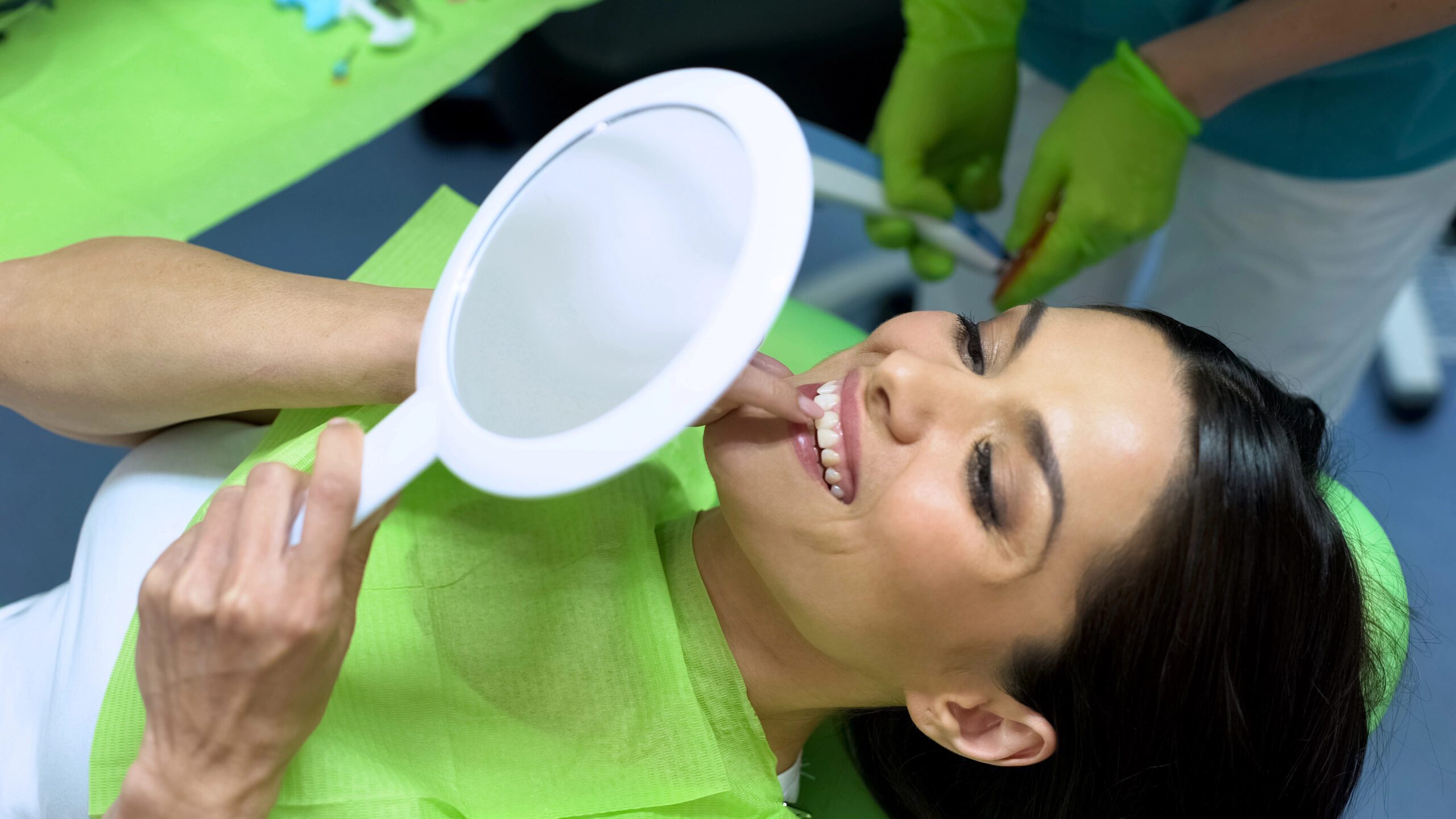Cosmetic dental procedures have rapidly grown in popularity as more people seek ways to enhance their smiles and boost their confidence. From dental veneers to crowns and implants, these procedures offer practical solutions for everything from misaligned teeth to missing teeth.
However, understanding how long these treatments typically last and how you can make the most of them is crucial to making smart choices about cosmetic dental work.
In this article, we will give you the lowdown on the durability of veneers, crowns, and implants, along with helpful tips on cosmetic dental upkeep to extend their lifespan.
Whether you have questions about choosing between porcelain veneers and composite resin or knowing the importance of practicing good oral hygiene, we’ll cover all you need to ensure your cosmetic dental investment stands the test of time.
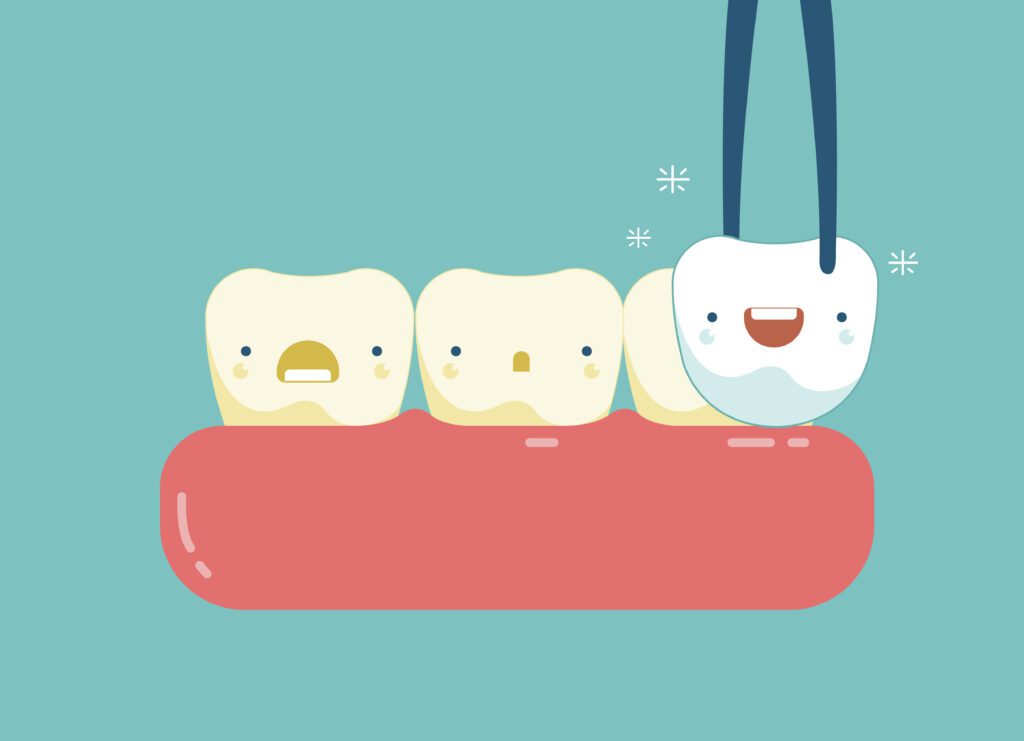
The Lifespan of Veneers
If you’re considering dental veneers to enhance your smile, you’re probably wondering just how long these little wonders can last.
The good news is that veneers typically have an impressive lifespan, ranging from 10 to 15 years. Of course, this varies depending on critical factors, such as your oral health, lifestyle choices, and how well you practice good oral hygiene.
Keeping veneers in top shape involves more than regular brushing with a soft-bristled toothbrush. Avoiding hard or sticky foods and visiting your dentist regularly for checkups are equally important. Additionally, recognizing signs that your veneers might need a little TLC—or possibly replacement—can go a long way in preserving that dazzling smile.
When given the proper care, veneers can be a durable and long-lasting solution for replacing damaged teeth, covering discolored teeth, or correcting crooked teeth.
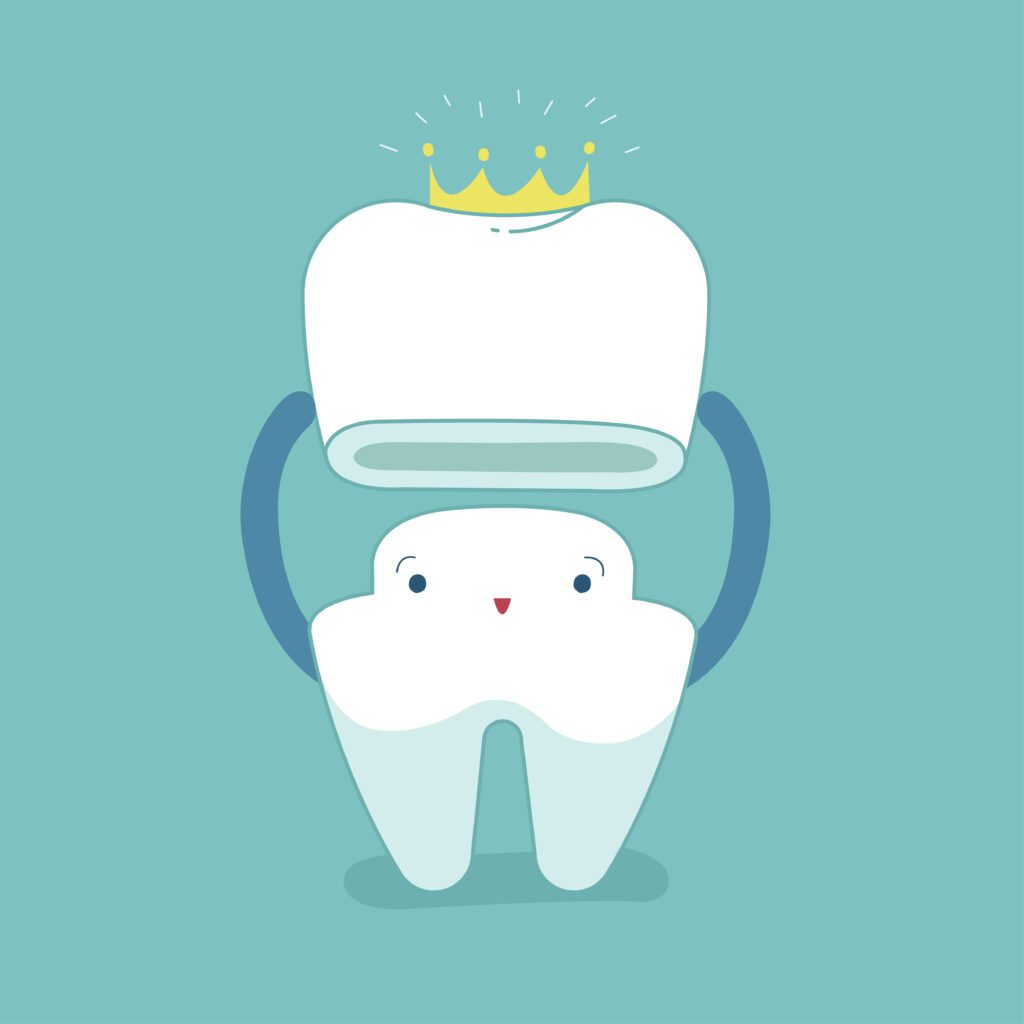
The Lifespan of Crowns
Curious about the lifespan of dental crowns? Let’s talk about how long a tooth-shaped cap can last.
Dental crowns typically last 10 to 15 years, but good oral hygiene and regular dental visits can last even longer. The materials used—like porcelain, metal, or zirconia—play a huge role in their durability.
For instance, while porcelain crowns offer a more natural look, metal crowns are known for their incredible strength. However, common issues like tooth decay around the crown or general wear and tear can lead to the need for a replacement.
Adopting good oral hygiene practices, such as brushing your teeth twice a day, using fluoride toothpaste, and visiting your dentist regularly for professional cleaning, can significantly extend the lifespan of your dental crowns.
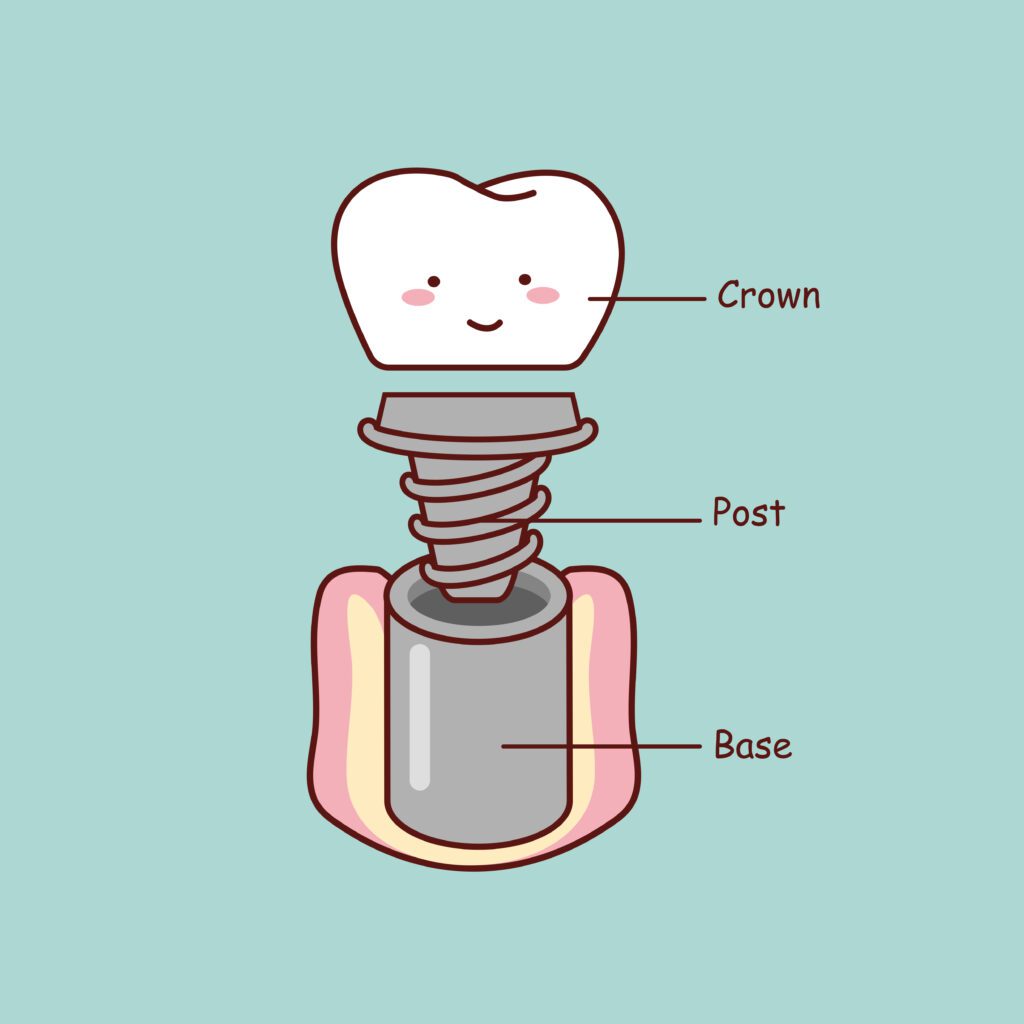
The Lifespan of Dental Implants
If you’re dealing with missing teeth and are seeking a permanent solution, a dental implant procedure might be your best bet. These artificial tooth roots are designed to support a crown, bridge, or even dentures, giving you back the function and appearance of natural teeth.
The beauty of dental implants is that they can last a lifetime with proper care, although the crowns on top may need replacement every 10 to 30 years.
Maintaining good oral health is crucial to ensure your implants’ longevity! This includes brushing your teeth twice a day, using whitening toothpaste for added sparkle, and visiting your dentist for regular checkups.
Unlike temporary veneers or cosmetic bonding, dental implants offer a robust and long-lasting solution. The health of your jaw bone and gum tissue is essential to their durability, so avoid gum disease and plaque buildup.
Dental implants could be the key to restoring your smile and dental health, whether you’ve lost a tooth to decay or an accident.
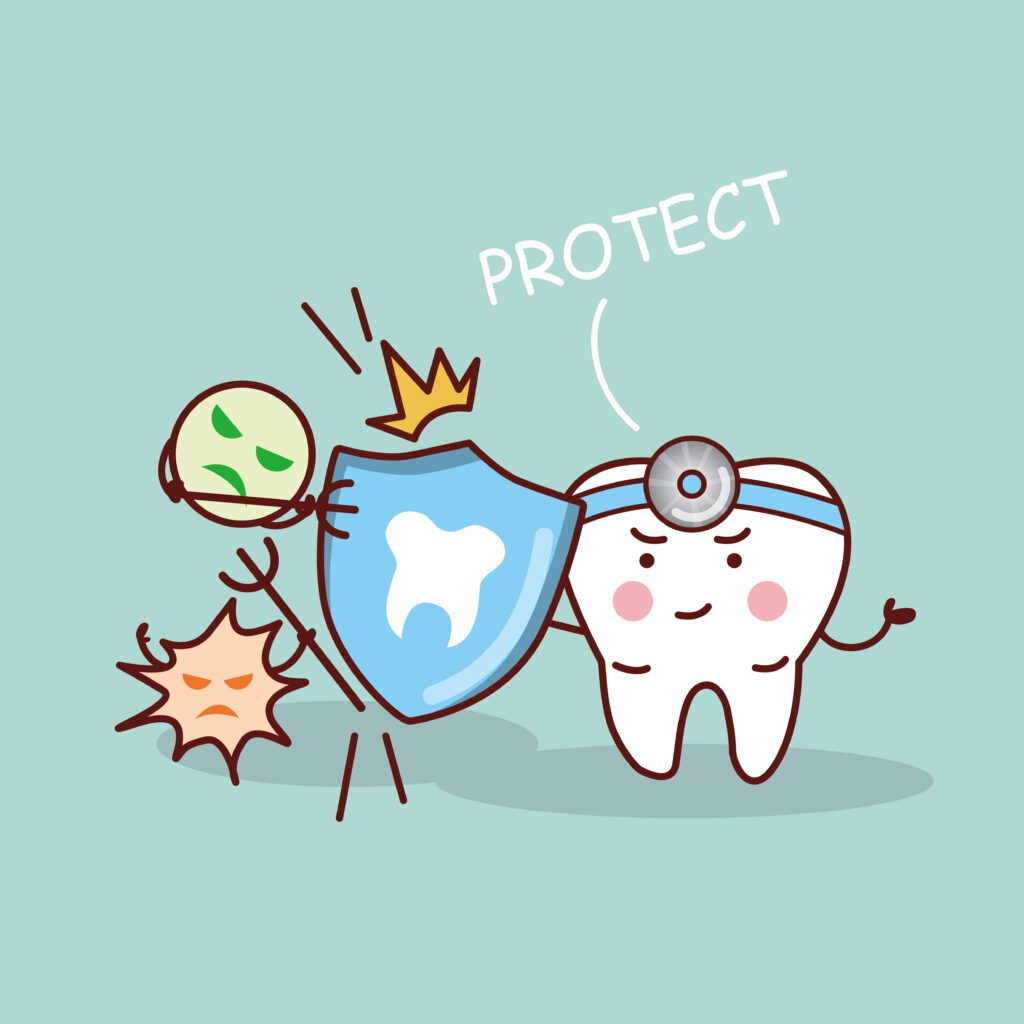
Tips to Extend the Lifespan of Cosmetic Dental Work
Cosmetic dentistry can significantly enhance your smile and boost your confidence, but to ensure that your dental work lasts as long as possible, it’s essential to adopt some good oral hygiene habits. Whether you’ve invested in dental implants, dental crowns, or teeth whitening treatments, taking care of your dental work can prevent tooth decay, gum disease, and even tooth loss. In this section, we’ll explore several key practices for maintaining cosmetic dental enhancements.
Consistent Oral Hygiene
The foundation of any oral health routine is consistent and effective hygiene practices. Brushing and flossing techniques are crucial in maintaining your natural teeth and cosmetic dental work. Using non-abrasive toothpaste is particularly important to avoid damaging the surfaces of your dental crowns, porcelain veneers, and composite resin fillings. Moreover, using appropriate tools, such as soft-bristled and interdental brushes, can help you clean effectively without harming your dental work.
Regular Dental Check-ups
Regular dental check-ups are non-negotiable if you want your cosmetic dentistry investments to last. Professional cleanings and examinations can catch early signs of potential issues before they escalate into serious problems.
For example, your dentist can detect early stages of gum recession or plaque buildup around your dental implants, helping protect your natural teeth and dental work. This proactive approach can save you from more extensive—and expensive—treatments down the line.
Lifestyle Choices
Your daily habits and lifestyle choices substantially impact the longevity of your cosmetic dental work. Avoiding harmful habits like smoking, biting hard objects, or using your teeth as tools can prevent unnecessary damage to your dental crowns, veneers, and other restorations.
Additionally, being mindful of your diet, such as avoiding staining foods and beverages, can help maintain the appearance of your teeth and prevent discoloration.
Protective Measures
Finally, implementing protective measures can add an extra layer of security to your dental work. Using mouthguards during sports or at night if you grind your teeth (a condition known as bruxism) can prevent severe wear or even breakage of your dental restorations.
Addressing these conditions promptly with the help of your cosmetic dentists ensures that your investments in cosmetic dentistry remain intact and functional for years to come.
By incorporating these tips into your daily routine, you can enjoy a beautiful, healthy smile while maximizing the lifespan of your cosmetic dental work.
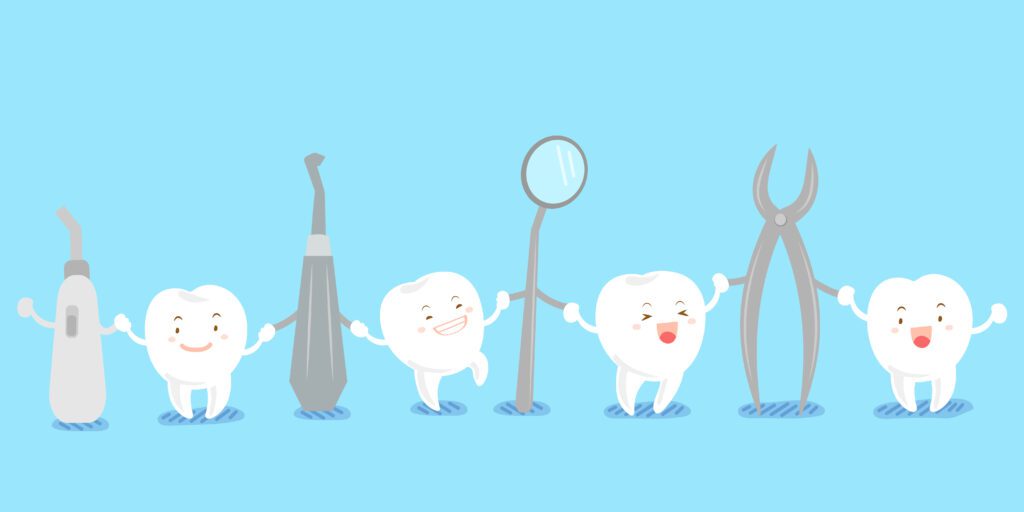
When to Consider Replacing Cosmetic Dental Work
Even with the best care and regular dental checkups, there comes a time when your cosmetic dental work may require replacement. Recognizing the signs early can save you from more extensive procedures down the line. Whether you’re dealing with discomfort, a discolored natural tooth, or visible wear along the gum line, knowing when to act can help maintain your overall oral health.
- If you notice changes in your dental crowns, such as shifts or fractures, it might be time for a dental crown procedure to replace the worn-out crown. Similarly, if a dental implant shows signs of instability or the dental crown on top appears worn, a consultation with your dentist can help determine the best course of action. Often, replacing these components can restore the function and aesthetics of your implant, ensuring your smile remains intact.
- Changes in appearance can signal the need for an update for dental work like teeth whitening or permanent veneers. Stains from foods or drinks and regular wear over time can make teeth look less vibrant than they once were. Restoring their brightness with renewed treatments can bring back the natural look of your smile.
- When a dental bridge no longer fits well or you feel discomfort around the underlying tooth, evaluating the structure’s integrity becomes crucial. Small issues with a bridge can often affect the surrounding natural tooth and tissue, so timely intervention helps preserve your healthy teeth.
- Lastly, lifestyle changes or new dental health concerns like a missing tooth space or gum recession might necessitate a review of your current dental work. By staying proactive and visiting your dentist for regular checkups, you can ensure any necessary replacements are handled efficiently, keeping your oral health in top condition.

Keep Smiling: The Final Word on Cosmetic Dentistry
Proper care for veneers, crowns, and implants is absolutely essential for maintaining the beauty of your smile. Strong and durable, these cosmetic solutions can last for years, provided you pay attention to a few key maintenance practices.
Brush your teeth twice daily with non-abrasive toothpaste to help protect the tooth enamel and the front surfaces of your cosmetic work. Regular dental check-ups ensure that any issues with your permanent crown or dental implants can be promptly addressed, preventing problems before they start.
If you ever experience broken teeth or discomfort from a dental crown, don’t wait—visit your dentist. Taking proactive steps and seeking professional advice will help keep your smile bright and your oral health in top condition. Remember, regular appointments are crucial to catching early signs of wear or potential issues, whether a root canal treatment, orthodontic procedure, or a simple check-up.
Cosmetic dentistry can also adapt to life’s changes, from accommodating a bone graft for a missing tooth area to replacing a temporary crown with a more durable final crown. Incorporating these elements into your dental routine helps ensure your investments in dental crowns, implants, and other enhancements stay functional and visually pleasing for as long as possible.
At the end of the day, the goal is to maintain a healthy and confident smile that feels like your own teeth. So why wait? Schedule an appointment with Patient Empowered Dentistry today to evaluate and maintain your cosmetic dental work, ensuring your smile stays as vibrant as ever. Keep brushing, keep smiling, and keep visiting your dentist!
Contact us today!
